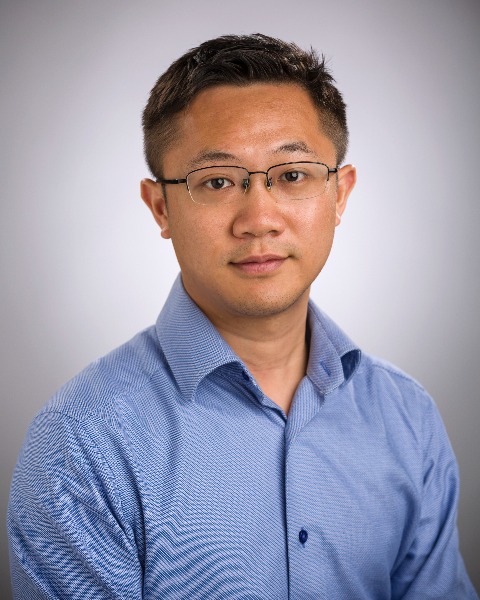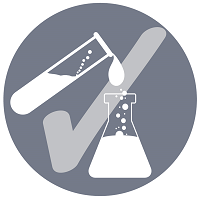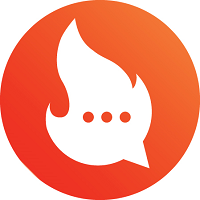Formulation and Delivery
Hot Topic: The Role of AI/ML in Accelerating Development of Nanomedicines
Application of AI in Nanomedicine Discovery and Design
Wednesday, November 12, 2025
3:00 PM - 3:15 PM CT
Location: 220 / Cantilever Room

Fan Zhang, PhD (he/him/his)
Assistant Professor
University of Florida, Florida
Hot Topic Speaker(s)
The unique potential of nanomedicine to address challenging health issues is rapidly advancing the field, leading to the generation of more effective products. However, these complex systems often pose several challenges with respect to their design for specific functionality, scalable manufacturing, characterization, quality control, and clinical translation. In this regard, the application of artificial intelligence (AI) and machine learning (ML) approaches can enable faster and more accurate data assessment, identifying trends and predicting outcomes, leading to efficient nanomedicine product development. In this hot topic symposium we will discuss the potential of AI and ML in nanomedicine product development with a focus on their applications in discovery, assessment, formulation, delivery, manufacturing, and clinical outcomes. The potential limitations of AI and ML approaches in product development are also covered. We will have four 10 min sessions in this symposium to cover the following:
1) Application of AI in nanomedicine discovery and design (Fan Zhang), 10 min
2) Application of AI in nanomedicine delivery, PK/PD and preclinical development (Sravan Patel), 10 min
3) Application of AI in nanomedicine manufacturing, characterization, and quality control (Vivek Gupta), 10 min
4) Limitations of AI/ML, regulatory requirements and future perspective (Mitra Mosharraf), 10 min
We could potentially include a 15 min panel at the end where the panel answers questions or have each speaker to speak for 15 min instead and just have 4 * 15 min sessions in this hot topic symposium.
AI and ML are revolutionizing how we develop formulations and delivery systems for nanomedicines. Several scientists and researchers do not know how AI and ML tools can be applied across different stages of development, especially in formulation development, target delivery and CMC. We will cover these here.
This session will have 4 speakers that will cover the role of AI and ML for discovery, formulation, PK/PD and delivery, manufacturing and quality of nanomedicines as it was described above. We will engage the audience by splitting this one hour into four sessions of 10 or15 min and if we go with 10 min/talk, we could also include a Q&A panel at the end where one of us could also act as a moderator to ask questions and also to invite the audience to ask questions and to be engaged.
Scientists working with development of formulations and delivery systems for nanomedicines, NLPs, polymeric nanoparticles, liposomes, and vaccines and are interested in learning more about which AI/ML tools to use.
1) Application of AI in nanomedicine discovery and design (Fan Zhang), 10 min
2) Application of AI in nanomedicine delivery, PK/PD and preclinical development (Sravan Patel), 10 min
3) Application of AI in nanomedicine manufacturing, characterization, and quality control (Vivek Gupta), 10 min
4) Limitations of AI/ML, regulatory requirements and future perspective (Mitra Mosharraf), 10 min
We could potentially include a 15 min panel at the end where the panel answers questions or have each speaker to speak for 15 min instead and just have 4 * 15 min sessions in this hot topic symposium.
AI and ML are revolutionizing how we develop formulations and delivery systems for nanomedicines. Several scientists and researchers do not know how AI and ML tools can be applied across different stages of development, especially in formulation development, target delivery and CMC. We will cover these here.
This session will have 4 speakers that will cover the role of AI and ML for discovery, formulation, PK/PD and delivery, manufacturing and quality of nanomedicines as it was described above. We will engage the audience by splitting this one hour into four sessions of 10 or15 min and if we go with 10 min/talk, we could also include a Q&A panel at the end where one of us could also act as a moderator to ask questions and also to invite the audience to ask questions and to be engaged.
Scientists working with development of formulations and delivery systems for nanomedicines, NLPs, polymeric nanoparticles, liposomes, and vaccines and are interested in learning more about which AI/ML tools to use.
Learning Objectives:
- Describe how AI/ML is used for discovery and design of nanomedicines
- Understand what AI/ML tools are currently used for design and development of nanomedicines for optimal delivery, tissue targeting, stability, manufacturability and overall quality.
- Discuss limitations of AI/ML and how to address these limitations to prevent bias, and to improve the predictive outcomes


